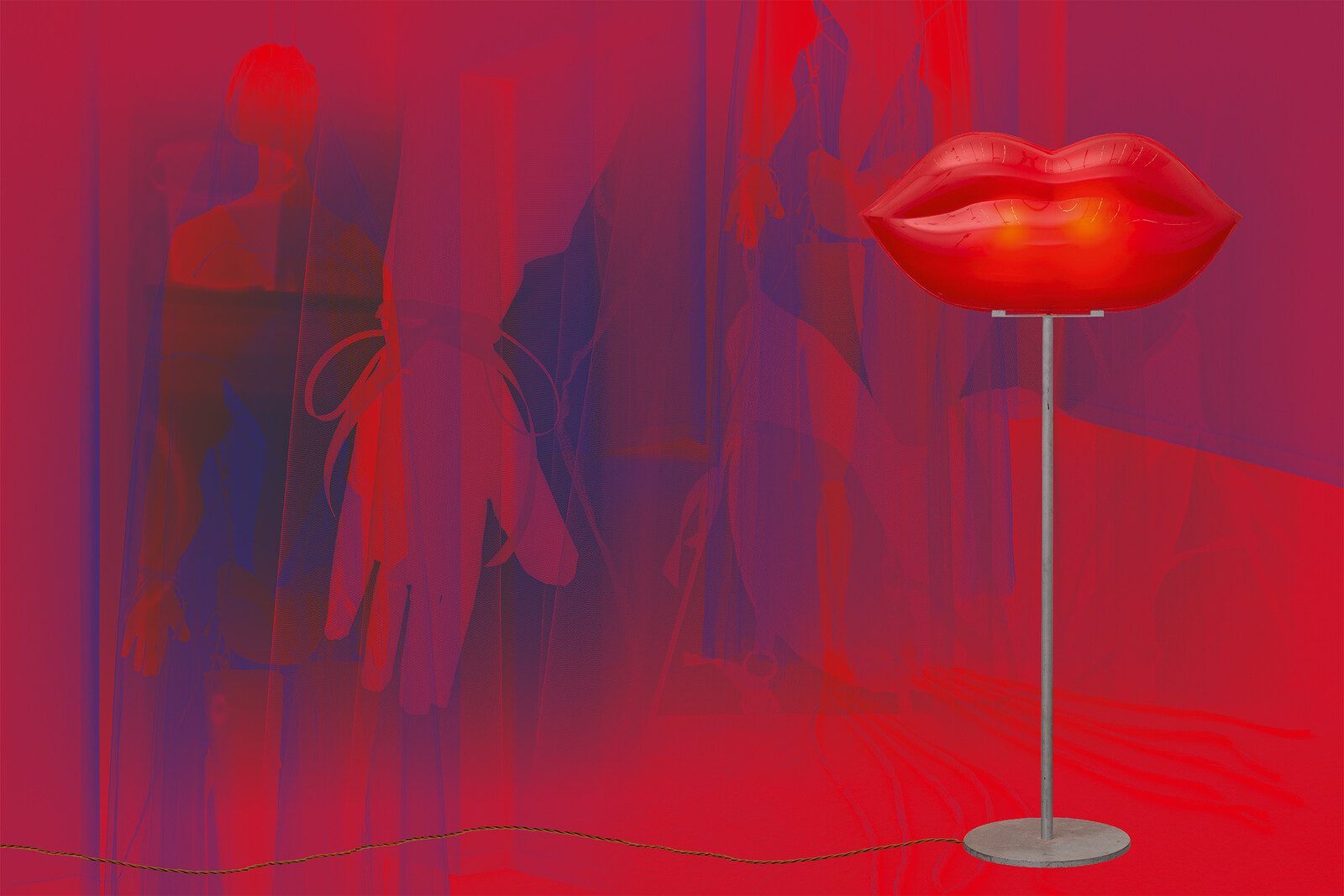December 14, 2021–February 20, 2022
Burgring 2
8010 Graz
Austria
Hours: Tuesday–Sunday 10am–6pm
T +43 316 740084
info@halle-fuer-kunst.at
With Larry Achiampong, Ayo Akingbade, Aram Bartholl, Camille Blatrix, Oscar Enberg, Vera Frenkel, Nigel Gavus & İlkin Beste Çırak, Antony Gormley, Mona Hatoum, Kaarel Kurismaa, Nicola L., Bertrand Lavier, Olu Ogunnaike, Laura Põld, Bruno Zhu
“All objects which surround us have souls of their own, have human qualities because they only exist in a human world. There are really not objects which man perceive. There are no raw inhuman objects. The moment furniture, houses, bread, cars, bicycles, or other products appear in our life, they are related to us, they are human.” —Ernest Dichter, The Strategy of Desire
The large group show Domestic Drama is an attempt to trace and conjure up the “souls” that Dichter described, which are allegedly resting in our everyday objects. The scene of this search is a place that is highly formed by emotions: the home. In hardly any other place than our own four walls, otherwise hardly tangible but nonetheless essential categories are revealed — such as our social, economic, ethnic, and gender affiliations. Living somewhere can very directly shape our social belonging and participation, and in particular precisely whenever this basic need is not fulfilled or is precarious.
In our immediate present determined by the ongoing COVID-19 pandemic, this condition has become clearer than ever — the “home” has been transformed from a refuge to a place of permanent production, where the borders between the private and the world of work have disappeared and where the conflicts that result from this, which formerly were enacted outside, are now negotiated in the interior of our private realms.
Domestic Drama represents an attempt to understand everyday objects not as tools and objects for use, but as representatives of all of these conflicts, and of wishes and desires that shape our identities. In contrast to a purely educational and analytic approach to the theme, this exhibition intends to use direct and diverse aesthetic and conceptual strategies to create a physical and psychological space in which the processes and mechanisms described above can be experienced.
As well as the ideas of Ernest Dichter, the theories of the renowned architecture critic Beatriz Colomina also play an important role. In her essay The Split Wall: Domestic Voyeurism (1992), Colomina coins the expression “domestic drama,” from which the exhibition takes its name. Colomina explores architectural concepts of living spaces whose design derives from stage-like situations, and also makes the subjects and objects in these spaces into the protagonists of a “domestic drama.”
With the intentionally “theatrical” appearance of the artistic works, and the cross-genre enactment of a living space, Domestic Drama wishes to invite visitors to participate physically. In a further step, the exhibition recognizes emotional states as key factors in our behavior and actions, which has now long been controlled not by ourselves as autonomous subjects but by the objects and processes that surround us. The poetic and also subversive and critical narrative that is spun in Domestic Drama thus attempts to focus our attention on the complexity of the questions and mechanisms of our everyday lives.
Curated by Cathrin Mayer.
The exhibition is realized with the friendly support of the Cultural Endowment of Estonia.
The HALLE FÜR KUNST Steiermark is supported by the Regional Government of Styria, the Austrian Federal Ministry for Arts, Culture, Civil Service and Sport, and the City of Graz.
Press inquiries: Helga Droschl, Alexia Meninkou

